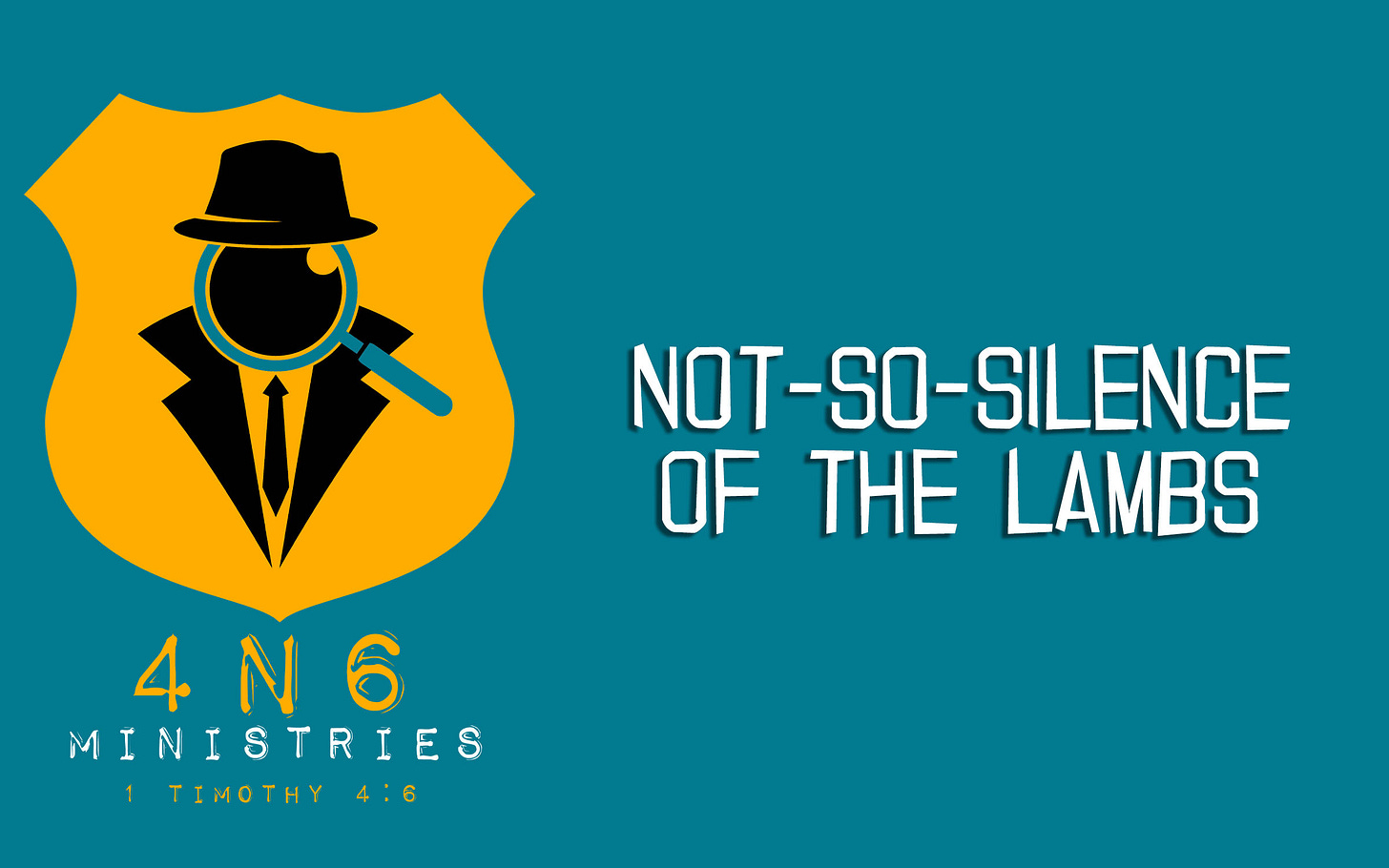Day 19 - Not-So-Silence of the Lambs
Scripture Passage: 1 Corinthians 9:19-23
Focal Verses: To the weak I became weak, in order to win the weak. I have become all things to all people, so that I may by every possible means save some. ~ 1 Corinthians 9:22 (CSB)
Most of us are familiar with the movie Silence of the Lambs. Fewer have read the book the movie is based on. But many will agree that it is probably the best, most nail-biting, edge-of-your-seat (fictional) serial killer picture ever made. I’m sure there were plenty of other serial killer movies prior to it (Michael Mann’s Manhunter springs to mind) and there certainly have been plenty of them since. But Silence of the Lambs is the undisputed standard by which most books/movies of this genre are judged.
I suspect it’s because of ‘Lambs’, as well as the numerous nonfiction books by FBI Profiler John Douglas, that the strange love affair with serial killers entered our cultural [maybe warped?] hearts. Through these multimedia feasts (no pun intended to Mr. Hannibal Lecter, I assure you) also sparked another love affair with our culture. For the first time, the world became familiar with the FBI’s Behavioral Science Unit and the little known (and less understood) discipline of forensic psychology).
In essence (as far as fiction is concerned), forensic psychologists provide criminal profiles on unsubs (unknown subjects such as serial killers) to help narrow down the search for who the culprit might be. The profiler is seen as shifting his/her brain into the mindset of the killer to try to figure out things like motive, victimology, and other facets that might help law enforcement track them down. Like a method actor on Adderall, these fictional profilers become their prey. They think what they think. They know what they know. They become Buffalo Bill or Hannibal Lecter or even Castle’s 3XK Killer (my personal favorite). The process seems almost mystical in nature on the big screen. [It’s also a farce, but I’m not going to spend the precious time telling you how forensic profiling really works).
Point is, Paul knows a little something about profiling himself. In today’s passage, he makes it clear. In his missionary journeys, he is poor for the poor’s sake, weak for the weak’s sake, strong for the strong’s sake, Jewish for the Jews sake, and Gentile for the Gentiles.
Paul gets into the minds of those he’s ministering to. He empathizes with them. He identifies with them. He meets them where they are. He doesn’t change the gospel. He doesn’t water it down for the sake of building a megachurch or to appear tolerant. By ‘becoming’ the very people he’s trying to reach, he’s better able to meet their actual needs, making it far easier to share the good news of Jesus with them.
You know, it’s amazing. I’ve studied 1 Corinthians many times throughout my life and I’m still finding new things about this book. I’ve mentioned this a couple of times in these devotionals, but I’m going to mention it again: time and again, Paul is telling the Corinthians that they need to die to theirselves and live for the needs of others. As John the Baptist puts it, they must decrease so others can increase. I believe it’s a central theme of this book and this passage is a prime example of why. In order for us to ‘be all things to all people,’ we must first learn to suppress our selfish desires. Suppress our egos. Suppress our senses of entitlement and walk a mile or two in someone else’s sandals. Look at the world through other people’s eyes. We can’t expect the lost to pay much attention to Jesus if His followers aren’t living His example. Let’s live by Christ’s example!
Father God, help us to be all things to all people. Not in a spirit of compromise, but in a genuine love for them and desire to introduce them to you. Help us, Lord, to decrease so that you (and others) might increase. Help us to put aside our own selfish ambitions and focus fully on you and Your Kingdom.


